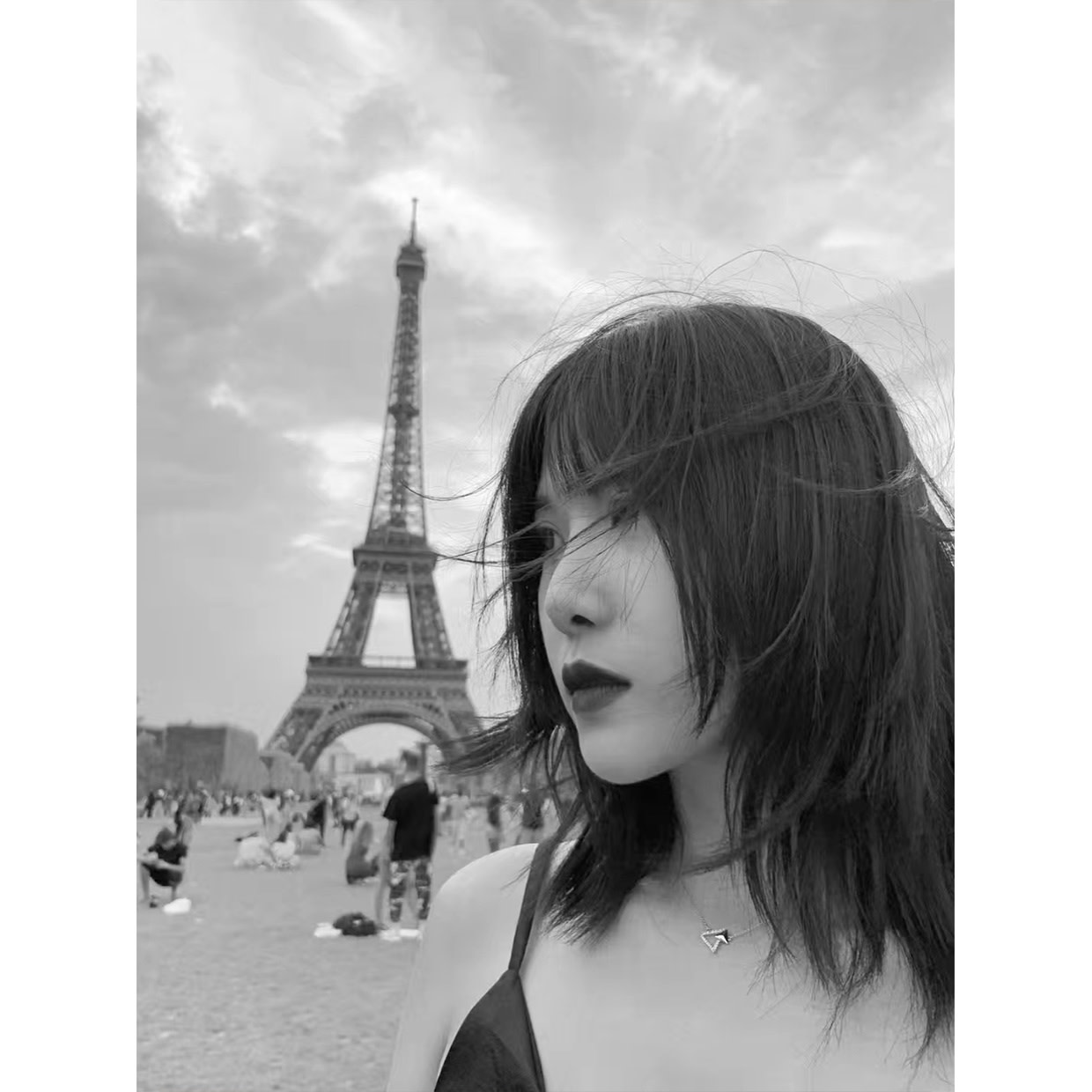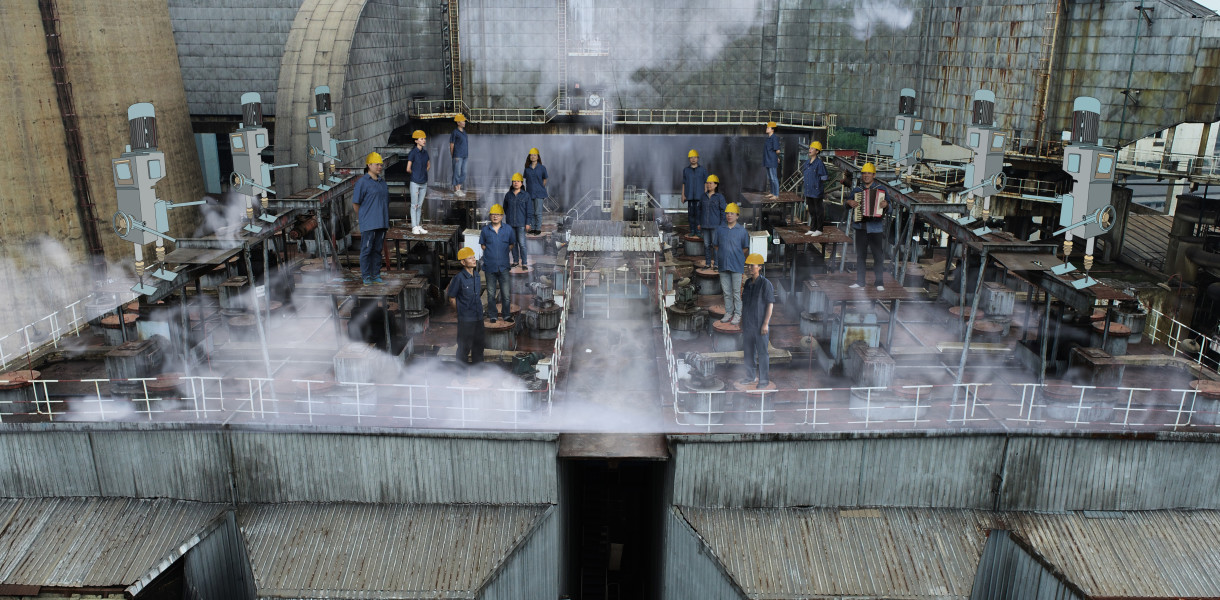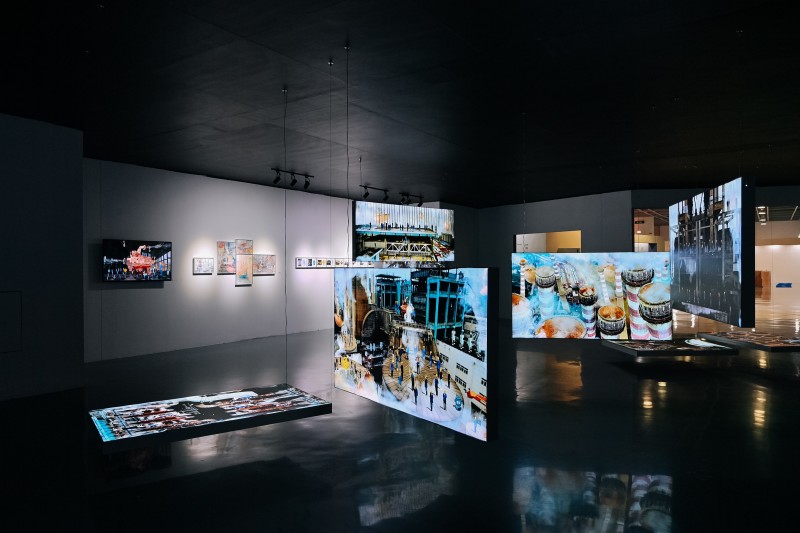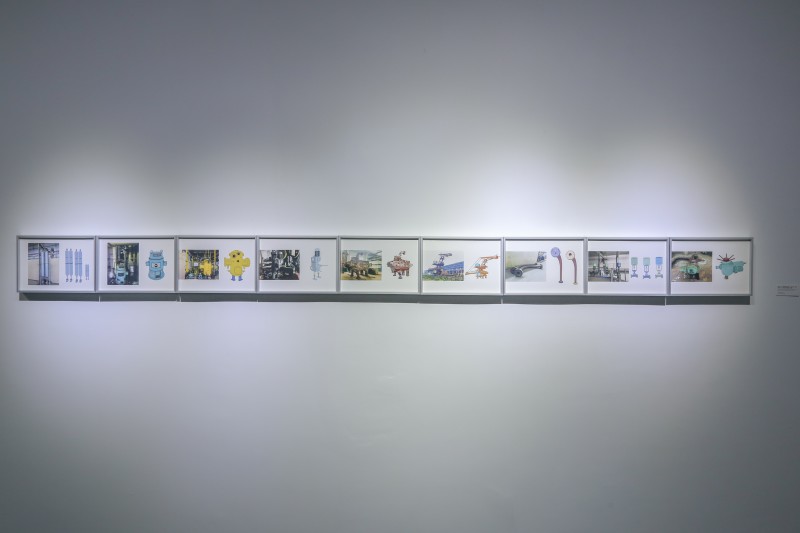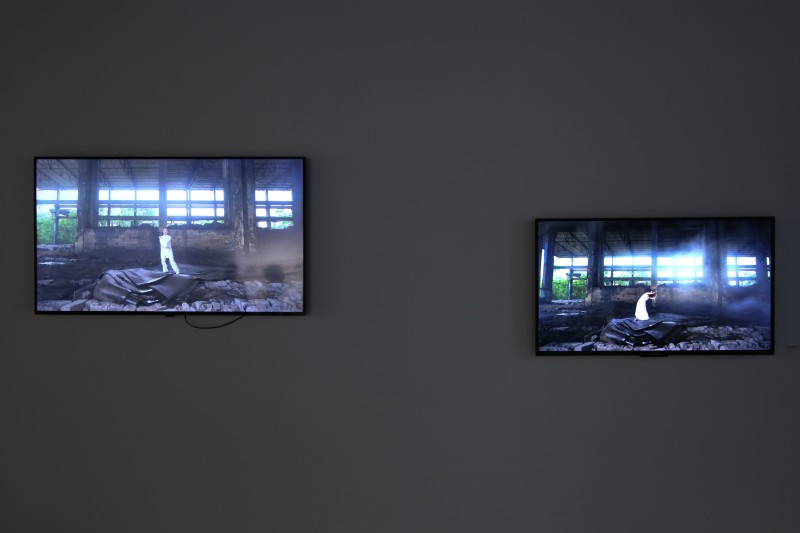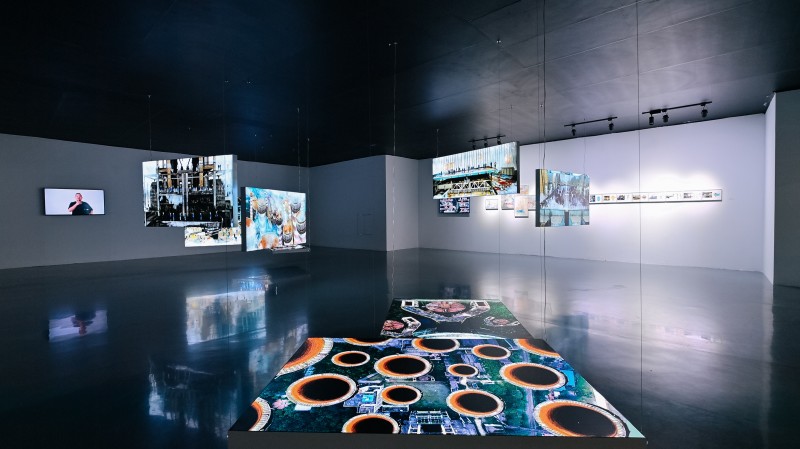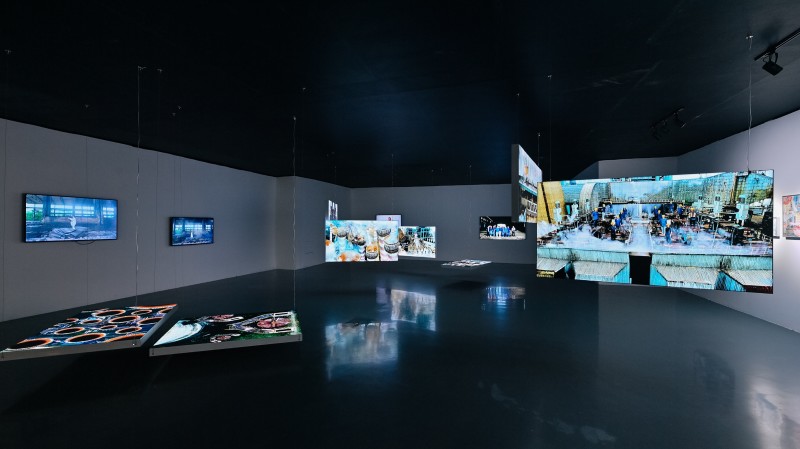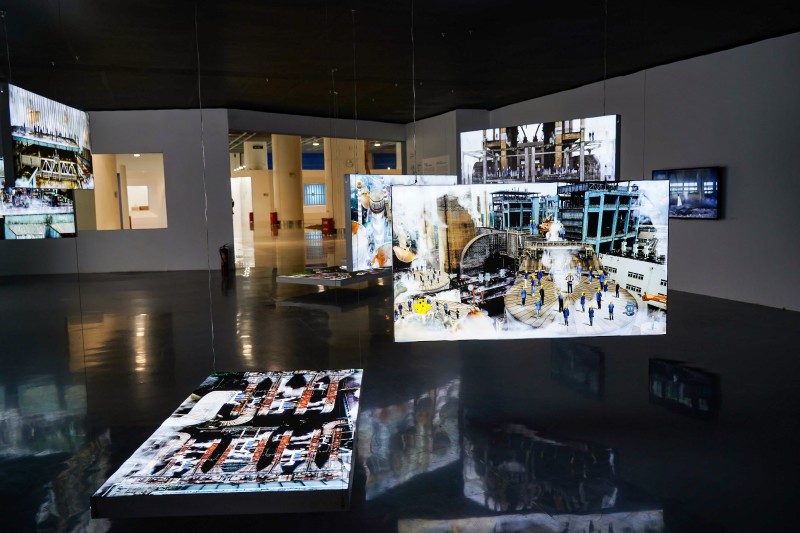WANG YIMO
Theater on Earth
Memory and Theater: Wang Yimo’s Rhapsody in the World
Wang Yimo’s Rhapsody in the World is comprised of video, experimental animation, and lightbox installations. The video depicts a conversation between the artist and her mother in an abandoned power plant. In the choral part of the work, the artist invited workers to return to the power plant for a performance saturated with memories. The animation combines live action and graphics with the power plant as a backdrop, creating another world for the workers. The lightbox installations simulate an empty theater imbued with collective memory.
Wang Yimo was born and bred in Chongqing, and her parents and ancestors were workers in the Chongqing Power Plant. During her childhood years, everything built around the plant was central to her life. In 2020, the plant was forced to close. Some of the workers were transferred and others lost their jobs. The closure greatly impacted the lives of every person whose family relied on the power plant. Shortly after this significant change, the peninsula became a ghost town, and the power plant became industrial ruins. Therefore, in Wang Yimo’s work, the abandoned power plant becomes the image of the ruins. Visually, it has the gravity and solemnity of a monument, suffused with a sense of ritual. For a long time, the power plant reflected not only the achievements of China’s industrialization, but also the struggles of one generation of people and their dream of building socialism. Wang Yimo’s memories of familiar childhood environments, such as workshops, factories and relatives’ courtyard, became unique creative resources that carried special emotion. However, they are no longer fields in the physical sense, but have become visual symbols that carries the imprint of their times and the previous generation’s pursuit of industrialization and modernization. In this context, the artist’s conversation with her mother is profoundly meaningful. Because it happens in this distinctive setting, what would have been an ordinary conversation gains a sense of ritual. Wang Yimo invited the workers to return to their former workplace, and their performances reactivated the ruins. The performance is collective, like the collective production of the past. The performances are ephemeral, but also has a certain ritualistic quality. The presence of the workers seems to be a reminder that the youth and ideals of one generation are fade away. The performance transforms this site into a boundless theater, as well as a temporary one. However, the dialogue and the gaze between the two generations, and their lives and dreams are revealed in varying degrees. The work is like an elegy that floats over the ruins and haunts the theater.
By He Guiyan

